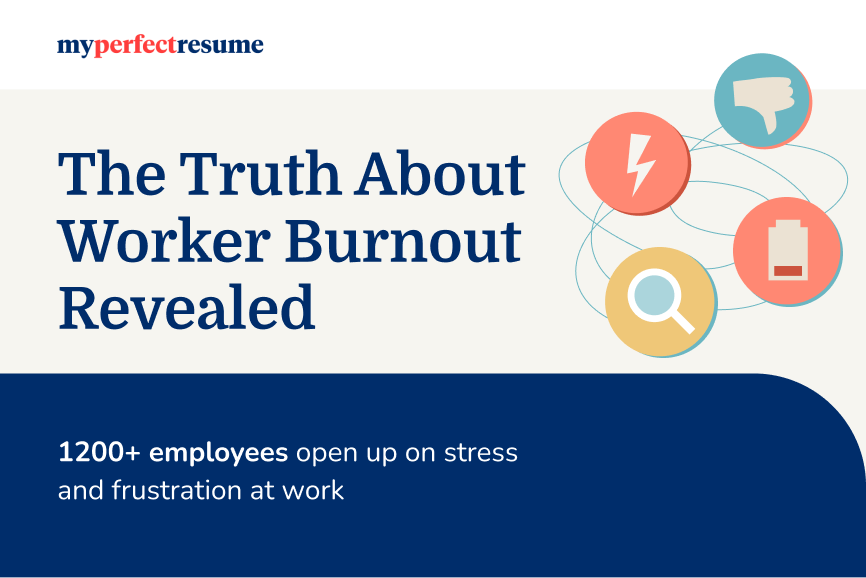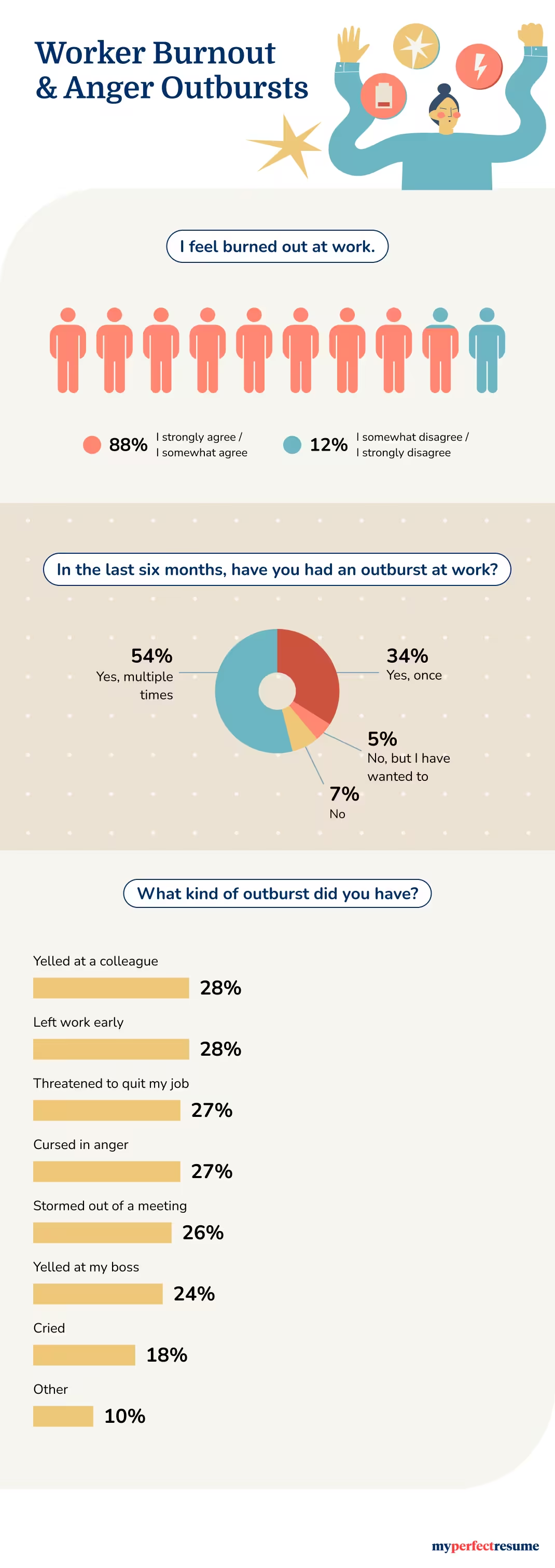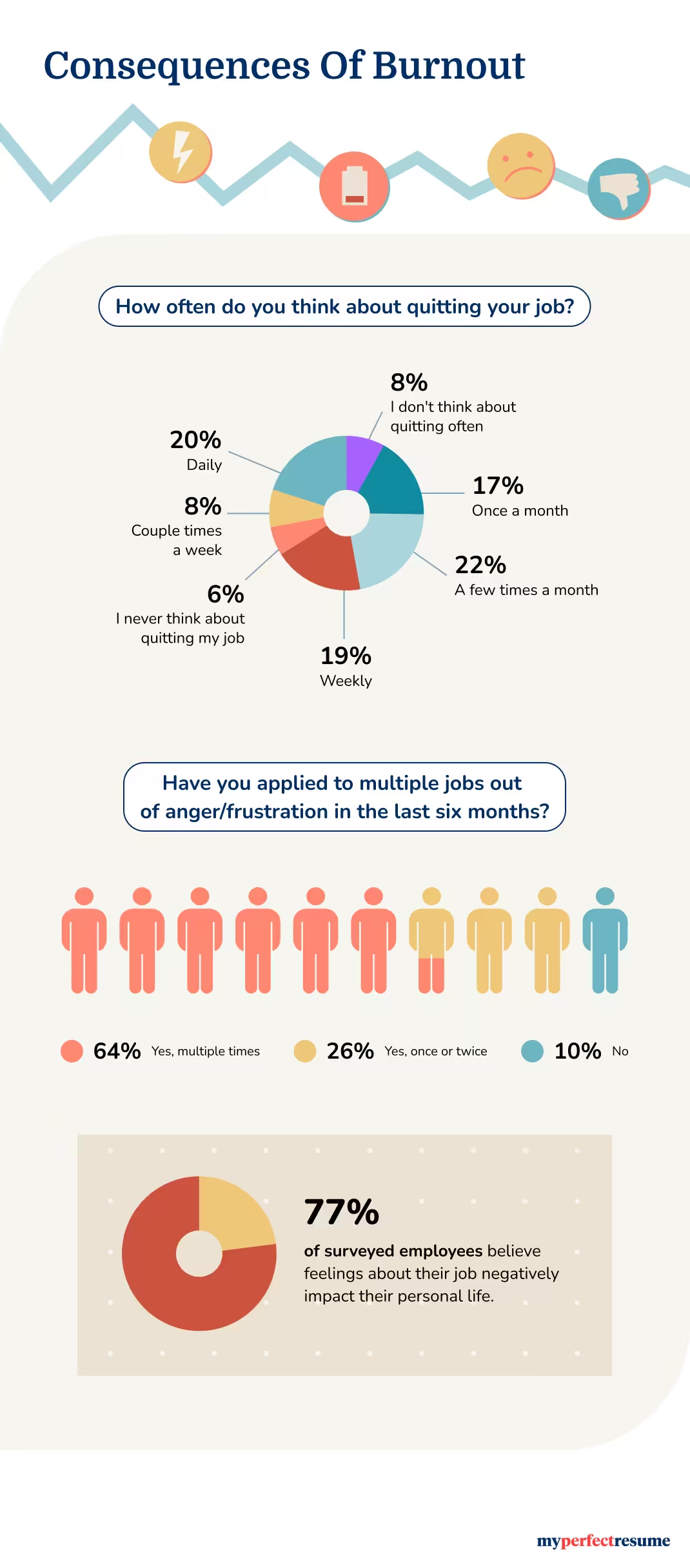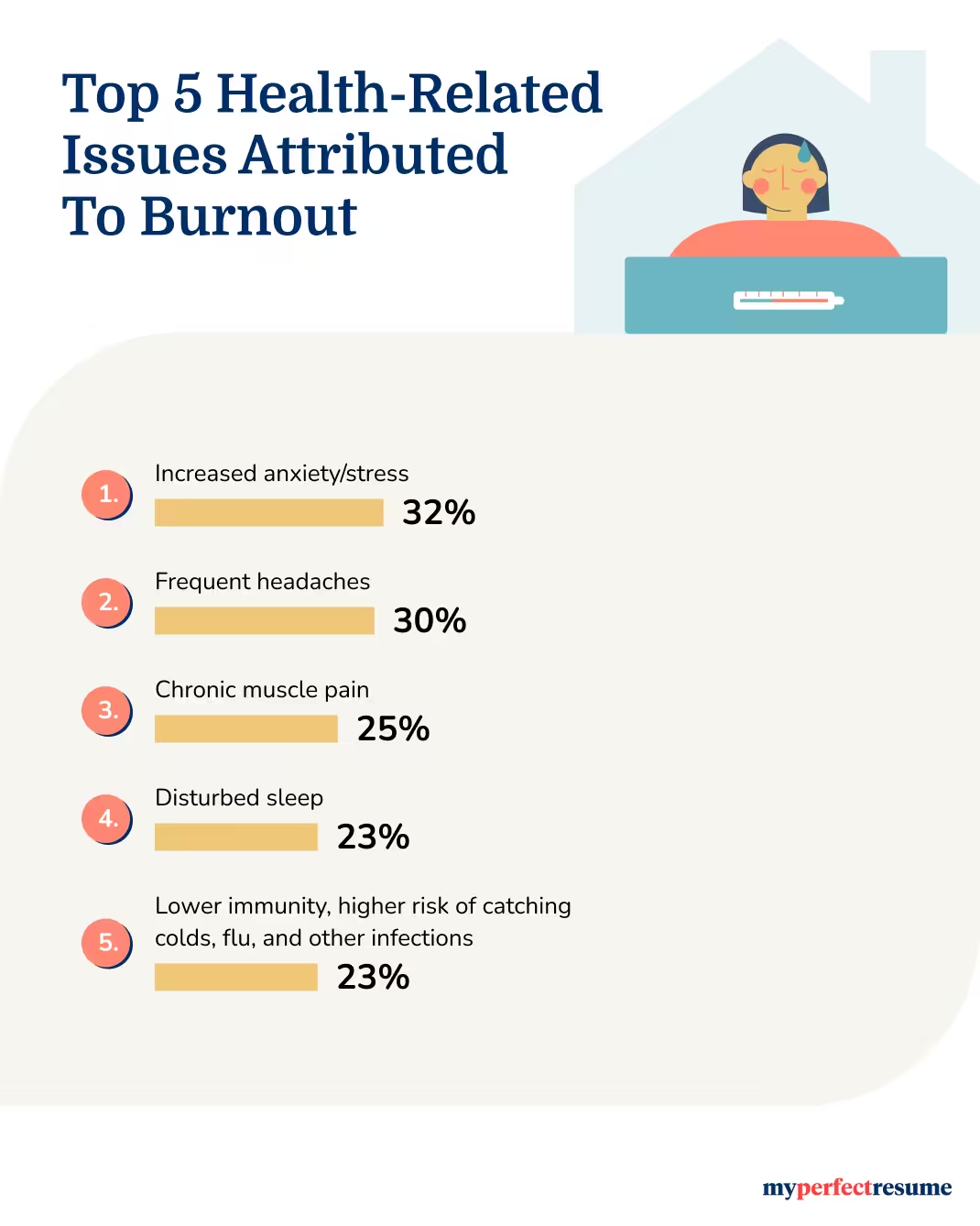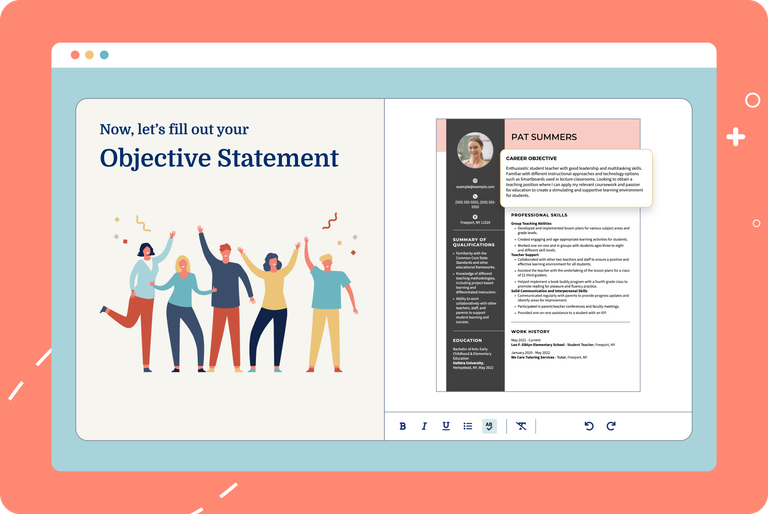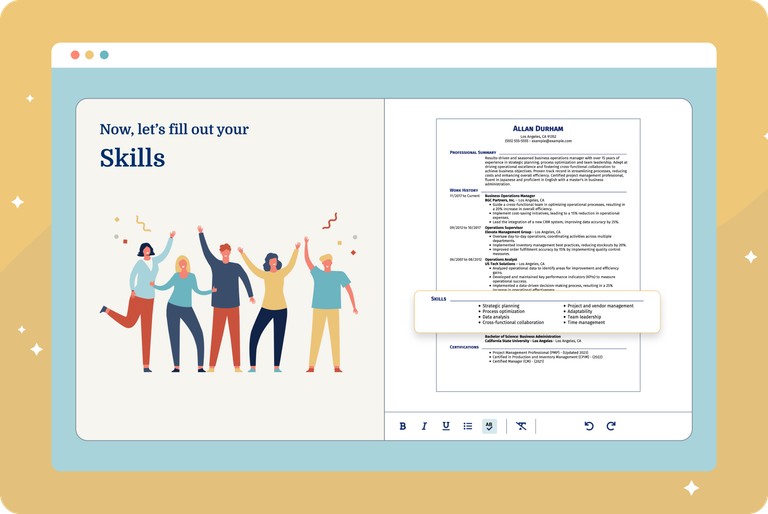Employee Burnout Survey Finds 1 in 5 Workers Think About Quitting Their Job Daily
MyPerfectResume.com [January 07, 2025],
[https://www.myperfectresume.com/career-center/careers/basics/worker-burnout]

Our customers have been hired at: *Foot Note
As deadlines loom and work-life balance blurs, more and more employees find themselves emotionally drained and less effective. Worker burnout is becoming a silent epidemic, sweeping through cubicles and remote work spaces alike. Though burnout isn’t a medical diagnosis, it can manifest negative mental and physical symptoms.
In March 2025, MyPerfectResume polled more than 1,200 U.S.-based workers to examine the scope and roots of employee burnout. How does burnout affect both individuals and the overall workplace? What’s the scale of the problem? And is there anything workers can do to prevent it? Let’s find out.
If you're feeling burnt out at work, it might be time for a new job. Our Resume Builder can help you update your existing resume or create one from scratch with a professional resume template in just minutes.
Burnout Hits Record Highs
As we delve into the escalating crisis of workplace burnout, research findings paint a concerning picture of its impact on employee health and well-being. Here's an overview of the current situation:
- 88% of respondents claim burnout.
- 1 in 5 think about quitting their job every day.
- 1 in 4 have experienced depression about their job.
Burnout's side effects are severe. Moreover, they may extend beyond the individuals directly impacted and negatively influence their workplace and personal lives.
- Increased anxiety (32%), frequent headaches (30%), and chronic muscle pain (25%) are the most common health-related issues attributed to burnout.
- Burnout causes disruptive workplace behaviors. 87% report having an outburst at work in the last 6 months.
- 77% believe feelings about their job negatively impact their personal life.
On a positive note, a vast majority of participants affected by burnout take steps to seek help.
74% have talked to a mental health professional about work-related stress.
Keep reading to discover what else our Employee Burnout Survey revealed.
Burnout Leads to Outbursts
The survey asked participants about their current experiences of burnout at work. Alarmingly, nearly 9 in 10 (88%) admitted to feeling burnout. The top causes of burnout that employees cite are too many meetings, too little autonomy, lack of role clarity, being given responsibilities unrelated to their job, and a toxic work environment.
Stressed and overworked, employees are reaching a breaking point and find themselves acting out in the workplace. 87% have had an outburst at work in the last six months, with roughly half (53%) reporting that they have had multiple outbursts.
The most frequently reported types of outbursts include:
- Yelling at a colleague – 28%
- Leaving work early – 28%
- Threatening to quit one's job – 27%
- Cursing in anger – 27%
- Storming out of a meeting – 26%
These outbursts are an unfortunate side effect of the extreme stress and pressure burnout can place on an individual. When asked, 9 in 10 employees say they regret having an outburst at work.
Signs of Burnout
In addition to outbursts that create a volatile work environment, burnout often leads to other troubling side effects:
- 1 in 5 workers report that they think about quitting their job daily. Another 27% think about quitting weekly.
- In total, 47% of workers think about quitting at some point during their workweek. 86% think about quitting their job at some point during the month.
- 90% claim that they have “rage applied” in the last six months, referring to when workers apply to a large volume of jobs, usually out of anger or frustration with their current workplace.
- Half of respondents say they experience dread or similar negative emotions before the start of every work week. Another 32% say they experience this dread several times a month.
Burnout’s Toll on Health
Burnout impacts employees’ both physical and mental health, and can ultimately undermine an employee’s overall well-being, as well as their job satisfaction and productivity.
Let’s have a look at the most common health-related issues attributed to burnout reported by the respondents.
- Increased anxiety/stress – 32%
- Frequent headaches – 30%
- Chronic muscle pain – 25%
- Disturbed sleep – 23%
- Lower immunity, higher risk of catching colds, flu, and other infections – 23%
- Upset stomach and digestion – 22%
- Difficulty concentrating – 21%
- Irritability – 21%
Additionally, almost 8 in 10 (77%) surveyed believe feelings about their jobs negatively impact their personal lives. In the last six months:
- 1 in 4 say they have experienced depression about their job
- 24% have taken a leave of absence due to stress
- 20% have called in sick because they couldn’t face going to work
- 20% felt angry at their co-workers
Burnout has serious consequences for an individual’s well-being, but the side effects can also negatively impact an entire team if that burnout results in unhealthy outbursts, anger, absenteeism, and more. To prevent burnout, employees should try their best to prioritize self-care, set healthy boundaries at work, and, where possible, reduce exposure to their job-related stressors.
Seeking Help for Burnout
Burnout and work-related stress are proving to be difficult challenges for employees, and the vast majority have had to turn to mental health professionals and/or HR to seek out solutions:
- 74% have talked to a mental health professional about work-related stress.
- 88% have talked to their manager or HR about their burnout.
Reducing Burnout
We also asked the participants experiencing burnout what would reduce their burnout. Here’s the full breakdown of the answers collected:
- Earning more money – 27%
- Having more role clarity – 22%
- More flexibility/autonomy with my schedule – 21%
- Getting a promotion – 21%
- Having fewer responsibilities – 20%
- The ability to work from home more – 19%
- Being more intellectually challenged – 19%
- Having more autonomy over my work – 19%
- Having a different manager – 18%
- The ability to go into the office more – 18%
- Fewer meetings – 17%
- Being able to set boundaries – 17%
- A shorter commute – 16%
- Other – 8%
Changing Careers – A Sure Cure for Burnout?
Burnout is not about people, it's about the workplace. That’s why frustrated employees view changing careers as a significant step in preventing burnout. If your current role no longer aligns with your values, skills, or goals, it may be a good time to open a new chapter in your professional life. See recent RTO policies for insight into key trends in workplace expectations.
With widely available resources for job seekers and useful online tools, such as resume examples, resume templates, and our user-friendly online resume builder, the career change process can be easier than ever.
Our customers have been hired at:*Foot Note

